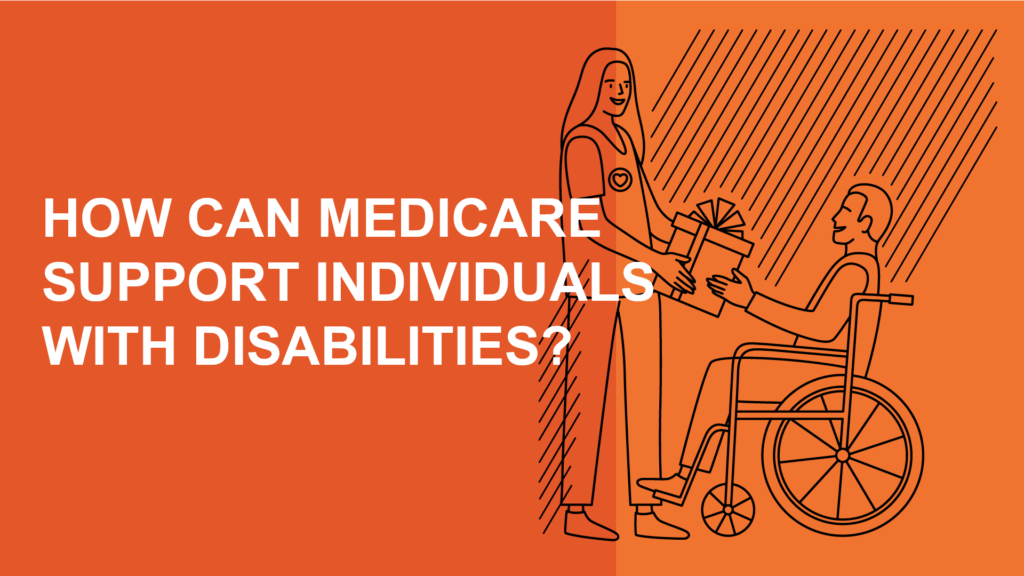Individuals with disabilities can be confident that Medicare will help pay for the medically necessary care that they need in the course of their treatment. Beneficiaries with disabilities make up about fifteen percent of all Medicare recipients, so there is a large foundation to support their care needs.
About Medicare
Medicare is a federal health insurance program that provides coverage to American citizens and lawful permanent residents of at least five years. The majority of Medicare beneficiaries are age 65 and older, but Medicare also covers individuals with disabilities who meet certain requirements.
Medicare Eligibility for Individuals with Disabilities Under Age 65
Individuals who have received Social Security Disability Insurance (SSDI) for at least 24 months are eligible to receive Medicare benefits. Social Security will already have their information, so these individuals are automatically enrolled in their Medicare Part A benefits, which come with a $0 premium. At month 23 or 24 of receiving SSDI benefits, the individual will receive their Medicare card in the mail.
Medicare Enrollment for Individuals with Disabilities
Even with automatic enrollment, Medicare beneficiaries with disabilities still need to enroll themselves in Medicare Part B or any other plans they would like. Part B is the outpatient medical portion of Original Medicare, which will be especially necessary for people who anticipate consistent medical expenses.
Signing up for Part B is a prerequisite for enrollment in a Medicare Advantage or Medicare Supplement plan. Even though all Medicare beneficiaries pay monthly premiums for Part B, the cost of coverage is quickly justified for people who have extensive healthcare needs with the savings available in these plans.
Medicare Coverage and Costs for Individuals with Disabilities
Coverage for people with disabilities is the same as for all Medicare beneficiaries. Part A and Part B provide hospital and medical insurance, including durable medical equipment and preventive screenings. Premiums, deductibles, copayments, and coinsurance are all costs involved in Medicare coverage.
Medicare supports individuals with disabilities through coordinated care plans. Those plans help beneficiaries manage their care, starting with the Welcome to Medicare visit. During this visit, the beneficiary’s primary care provider will take a comprehensive inventory of their health history and current health status, complete with preventive health screenings for depression and other health risks. Other necessary tests and services are planned during this visit, so the patient leaves with a plan to stay up to date with the maintenance care that’s specifically tailored to their condition.


